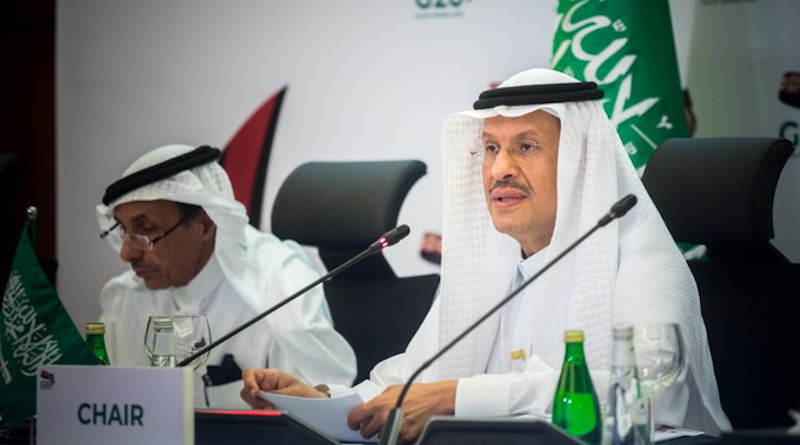Oil Coup For Saudi Arabia As Output Cuts Are Extended
By Arab News
By Frank Kane
Saudi Arabia pulled off a coup in the world of oil diplomacy on Saturday with an agreement to extend the historic output cuts credited with pulling energy markets out of chaos.
At a virtual meeting of the Organization of Petroleum Exporting Countries (OPEC) and non-OPEC producersled by Russia, 23 exporters agreed to roll over the record-breaking cuts until the end of July, with a monthly option to renew the agreement after that.
The deal has strict provisions against producers who fail to comply. Some countries, notably Iraq and Nigeria, have been accused of ignoring the agreed caps on crude production.
“Effective compliance is vital if we are to secure the hard-won stability in global oil markets and restore confidence in the unity and effectiveness of the OPEC+ group,” said Prince Abdul Aziz bin Salman, the Saudi Energy Minister. “This stability and positive market sentiment will bring its own rewards.”
OPEC+ agreed unanimously that countries that have fallen short of full compliance since May 1 will make up that shortfall over the summer months and will adhere to production limits in the future.
Compliance will be assessed at monthly ministerial monitoring meetings until the end of the year. “We must be vigilant. Each of the 23 countries represented here must be on guard for any signs of backsliding from their commitments,” Prince Abdul Aziz said.
“All OPEC+ partners must deliver on their pledges for the collective pledges to be sustained. Each country has to adhere to its commitment to restrain production along the agreed guidelines.”
The minister referred to the recent “low point” when American crude briefly traded below zero, but said the OPEC+ deal, bolstered by extra voluntary cuts from Saudi Arabia, the UAE and Kuwait, had helped the global market over the worst.
Brent crude, the global benchmark, has more than doubled in price since the cuts took effect. “Demand is returning as big oil-consuming economies emerge from pandemic lockdown,” Prince Abdul Aziz said. “Through our commitment to a proactive policy, within a cohesive and collective framework, we are restoring confidence and stability to global oil markets. Today, we have grounds to be cautiously optimistic about the future.”
Energy experts welcomed the deal, but echoed the minister’s caution. “This is an important success for OPEC+. It shows ability to deliver, willingness to address discipline, and coherence in the approach,” saidChristof Ruehl of the Center on Global Energy Policy at Columbia University.
“The problem is that the more OPEC+ succeeds, the easier it becomes for private producers to enjoy the fruits of its labor.”

